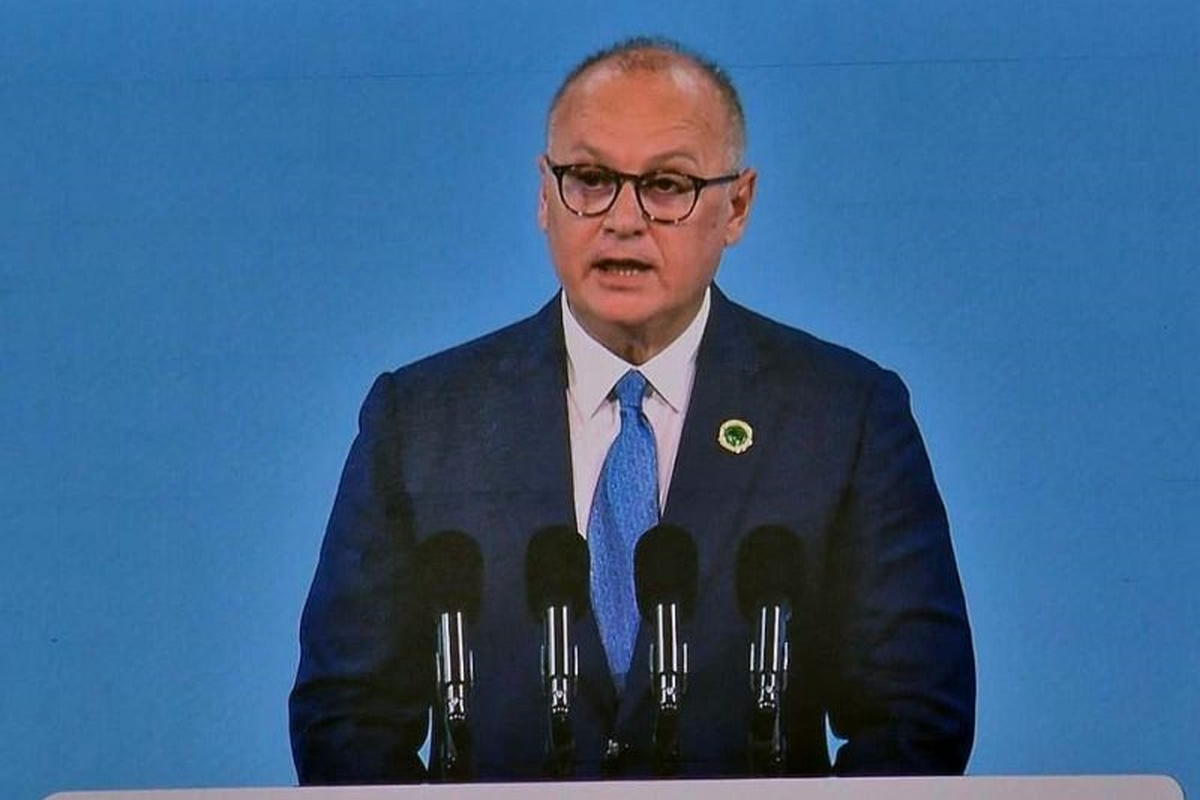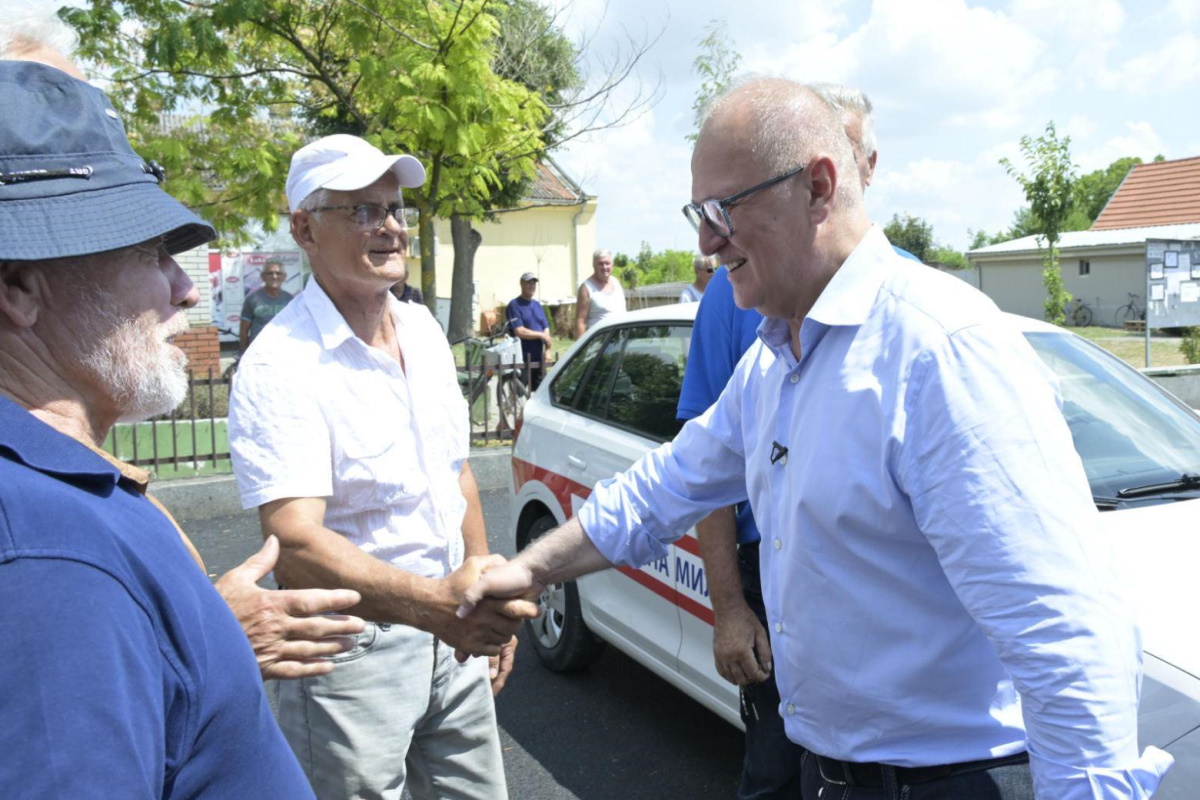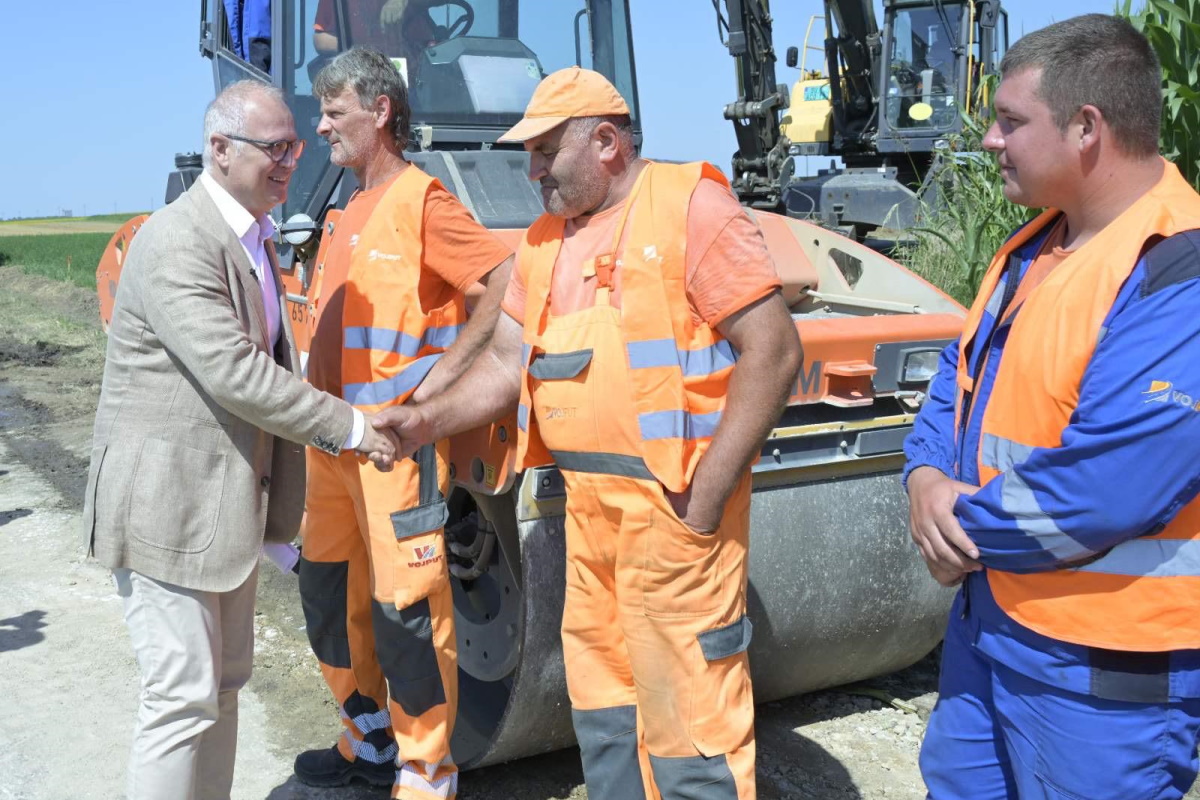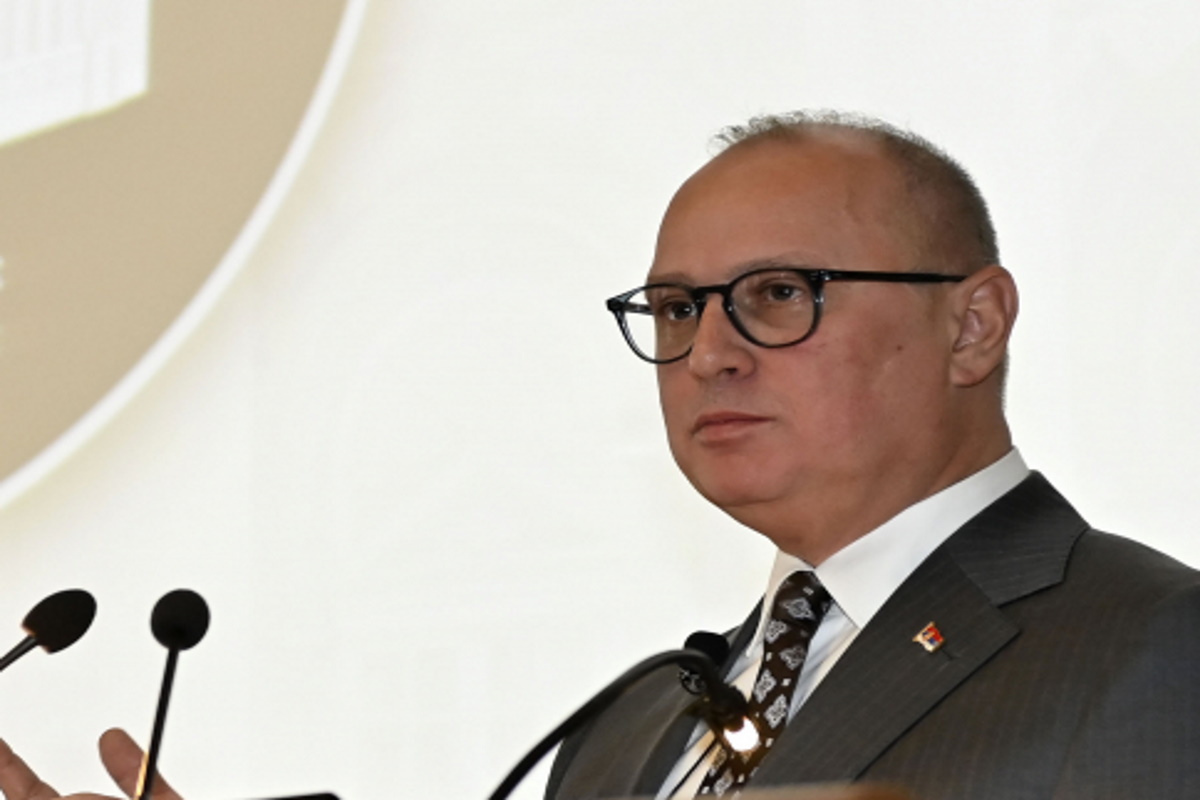After the joint session of the republican and provincial governments, the Minister of Construction, Transport and Infrastructure, Goran Vesić, in a statement to the media, announced the construction of new roads and railways for the autonomous province of Vojvodina, as well as the continuation of the “Clean Serbia” Project.
Minister Vesić said that more than 300 kilometers of highways and expressways are being built in Vojvodina, and added that sewer construction works are underway at seven locations in the province as part of the “Clean Serbia” Project, and that in Novi Sad a wastewater treatment plant will be constructed.
“We talked about what else we can do together in Vojvodina, and I am grateful to Prime Minister Miloš Vučević and Provincial Prime Minister Maja Gojković for organizing the session of the two governments,” said Vesić.







